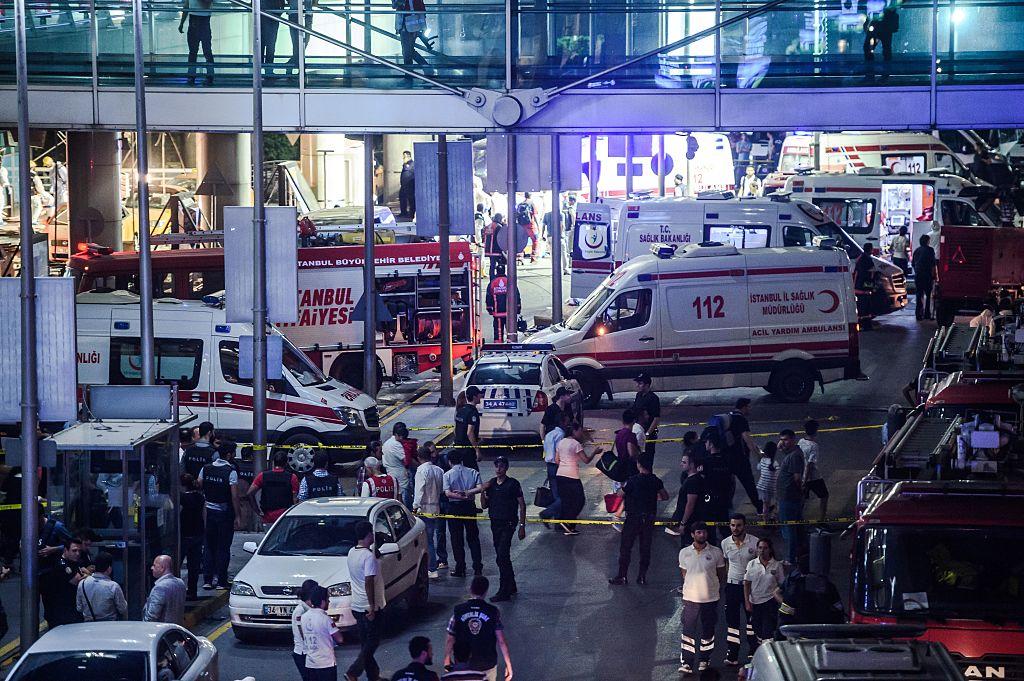Turkey remains at a dangerous pass
Isis forces lapping at Turkey's southern frontier now take their fight to the heart of Turkey itself

The latest murderous terror attack by so-called Islamic state on Ataturk Airport in Istanbul is a stark reminder that there are some even bigger crises in international affairs than Britain ending its membership of the European Union. It is now all but academic to consider where Turkey might now be if it had, at some point since its application for membership of the European Community in 1961, been granted some kind of membership status. What we do know is that Turkey remains at a dangerous pass.
Dangerous, that is, because it finds its security assailed by terrorism and separatism, while it’s hard fought secularism and, by regional standards, democratic and liberal society is itself under threat from an increasingly authoritarian government prone to appeasing militant Islamists. Its tourist industry, like that of other states struggling to survive, such as Egypt and Tunisia, is being crippled by the terror threat. Things were not helped by Turkey’s assertive reaction to incursions on its sovereign airspace by ancient rival Russia. Once a playground for Russians of every class, Turkey’s beaches and ancient ruins are in effect out-of-bounds for the citizens of Putin’s reborn Russian Empire. Indeed, not since the days of Tsars and Sultans have relations between these two powers been colder. A recent rapprochement between Turkey and Israel hardly makes up for the dysfunctionality of wider Turkish foreign and diplomatic policy.
Turkey has never come to terms with its Kurdish minority, and shows even less inclination to do so now. Sometimes portraying himself and his Justice and Development party as “The New Ottomans”, Recep Tayyip Erdogan is even less willing than his predecessors to settle the Kurdish national question for good. And so the cycle of terror and repression continues, adding unnecessarily to Turkey’s struggles with Isis. Although a military regional superpower, Turkey's armed forces are ill-equipped to deal with the kind of asymmetric war that is waged by Isis.
It may be the case that Isis has seen some significant defeats in Syria and Iraq recently, but it has not collapsed and shows little sign of doing so. If the claims often made by his enemies at home and in the west are remotely true, that Mr Erdogan in some way abetted Isis for the sake of some geopolitical strategy to assert Turkish influence, than it has failed all too miserably. Not only are Isis forces lapping at Turkey's southern frontier with Syria, the sounds of the shelling clearly audible from Turkish territory, but, as we see with this attack on Istanbul, groups and individuals self-declared in affiliation with Isis can take their fight to the heart of Turkey itself.
Turkey, then, is under strain, and is following policies of repression and Islamism that are not only a betrayal of its past but are making its survival as an independent viable nation state under increasing doubt for the longer term. A minor riot at a record shop launching a new Radiohead album the other day was a small but powerfully symbolic moment when Islamists and intolerance rained violence upon peaceful, secularist fellow citizens, simply because they wished to listen to music and drink beer during Ramadan. Insensitive the Radiohead fans may well have been, but those ugly scenes showed how the cultural climate in Turkey is shifting in the wrong direction.
Turks today are fearful. For decades this has been a nation at peace with itself and its neighbours (with the notable exception of Greece and the intervention and occupation of part of Cyprus), and a valuable and loyal Nato ally. It has recently concentrated on economic and industrial development. It has enjoyed rising prosperity, a free press, democracy and jobs for its young people, in stark contrast to so many places around it. Now all of that is at risk, and some aspects of its free society will go into retreat. Turkey is in danger because it has a government that in many ways is making its predicament worse. We should all be fearful of what may lie in the future for Turkey.

Join our commenting forum
Join thought-provoking conversations, follow other Independent readers and see their replies